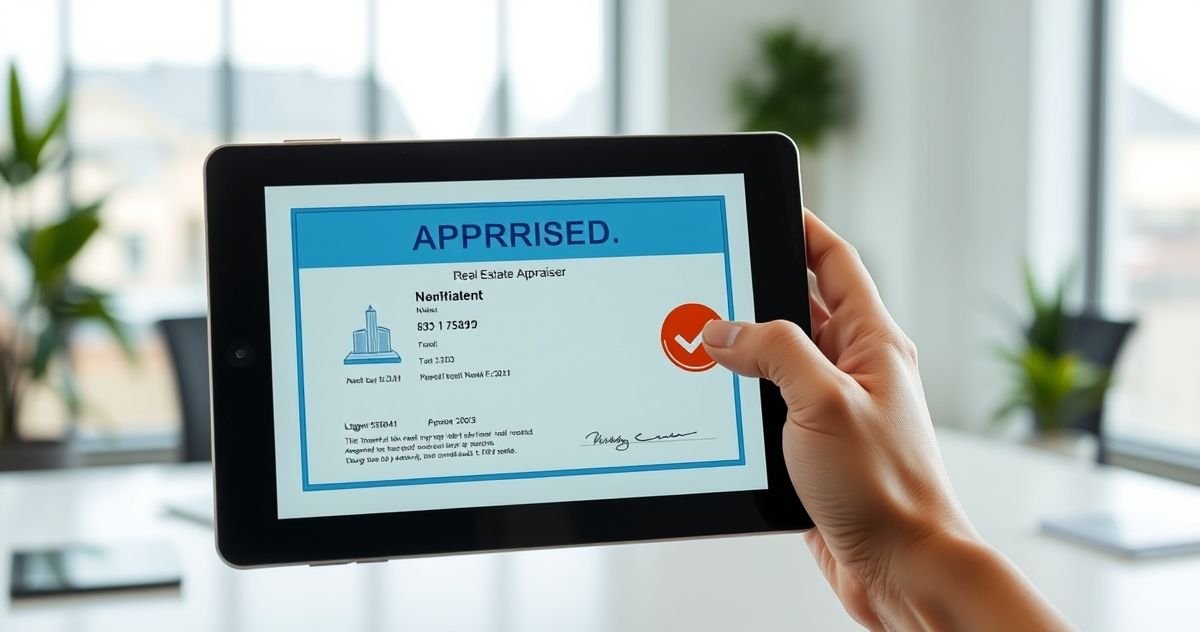Appraiser licensing verification is a vital step in any real estate transaction, ensuring that the professional valuing your property is properly licensed and qualified. This process involves checking reliable databases such as the Appraisal Subcommittee (ASC) National Registry to confirm that the appraiser holds an active license or certification issued by the relevant state authority.
This verification matters because real estate appraisals influence significant financial decisions, such as mortgage approvals, sale prices, and legal settlements. Using an unlicensed appraiser can lead to rejected appraisals, costly delays, and potential fraud.
Why is verifying an appraiser’s license mandatory?
- Legal compliance: Federal laws require federally related real estate transactions to involve appraisers who are state-licensed or certified. Lenders must verify this to remain compliant.
- Fraud prevention: Unlicensed or unethical appraisers may produce inflated or misleading valuations. Verifying credentials combats this risk.
- Professional standards: A valid license confirms the appraiser has met the minimum education, experience, and ethical requirements defined by The Appraisal Foundation and respective state boards.
- Accountability: Licensed appraisers adhere to the Uniform Standards of Professional Appraisal Practice (USPAP). Violations can result in disciplinary actions reflected in licensing records.
How to verify an appraiser’s license:
- Obtain the appraiser’s full name and license number.
- Visit the Appraisal Subcommittee National Registry.
- Enter the appraiser’s name or license number into the search tool.
- Confirm the license status is “Active” and check for any disciplinary history.
Understanding appraiser license types:
| License Level | Description | Typical Property Types |
|---|---|---|
| Licensed Residential Appraiser | Entry-level license for basic property types. | Non-complex 1-4 unit residential properties up to $1 million. |
| Certified Residential Appraiser | Advanced residential license for complex properties. | All 1-4 unit residential properties regardless of value. |
| Certified General Appraiser | Highest qualification. | All property types including commercial and agricultural without value limits. |
(Source: The Appraisal Foundation)
Knowing the license type ensures you select an appraiser qualified for your property’s complexity and value.
Common misconceptions and red flags:
- Some assume lenders always verify appraisers; however, if you hire an appraiser independently, verification is your responsibility.
- Not all appraisers can appraise all property types; ensure the license matches the appraisal needs.
- If an appraiser hesitates or refuses to provide their license number, consider it a warning sign.
FAQs:
- What if the appraiser isn’t listed in the registry? Double-check details or consult your state’s licensing board. An absence may indicate no valid license.
- What does “disciplinary action” on a record mean? It signals past professional violations and warrants caution.
- Can I choose my mortgage appraiser? Lenders select the appraiser to maintain independence, but consumers can verify licensing and review appraisal reports.
Verifying an appraiser’s license is a straightforward, free step that safeguards your real estate investment by ensuring the appraisal’s validity and reliability.
For more details on appraisal ethics and standards, visit our articles on Professional Appraisal Standards and understand common Mortgage Fraud Red Flags to protect yourself further.
Sources:
- Appraisal Subcommittee National Registry: https://www.asc.gov/Pages/FindAnAppraiser.aspx
- The Appraisal Foundation Qualification Criteria: https://www.appraisalfoundation.org/imis/TAF/Standards/Appraiser_Qualifications/TAF/AQB_Criteria.aspx
- Consumer Financial Protection Bureau: What is a Home Appraisal? https://www.consumerfinance.gov/ask-cfpb/what-is-a-home-appraisal-and-why-is-it-important-en-132/

